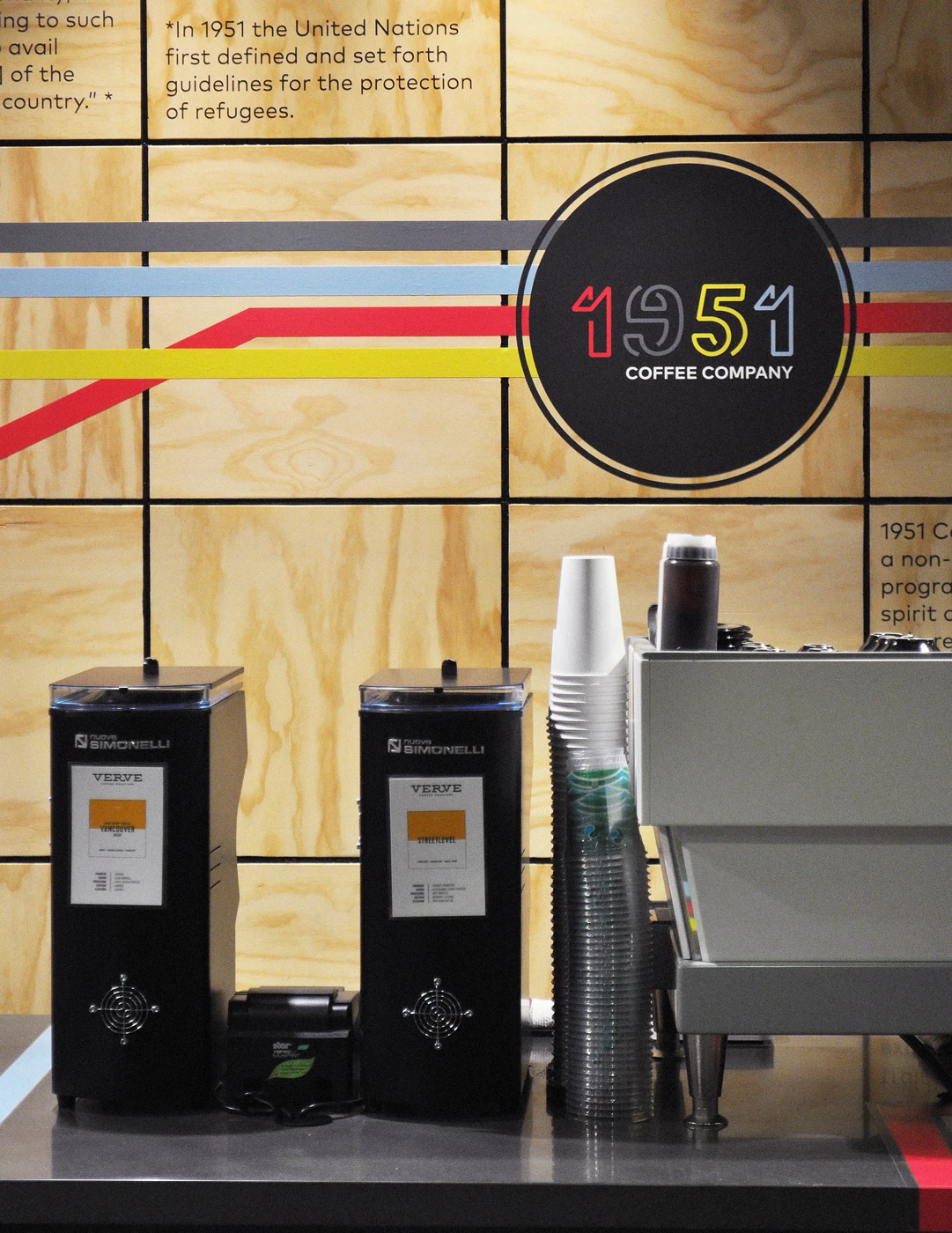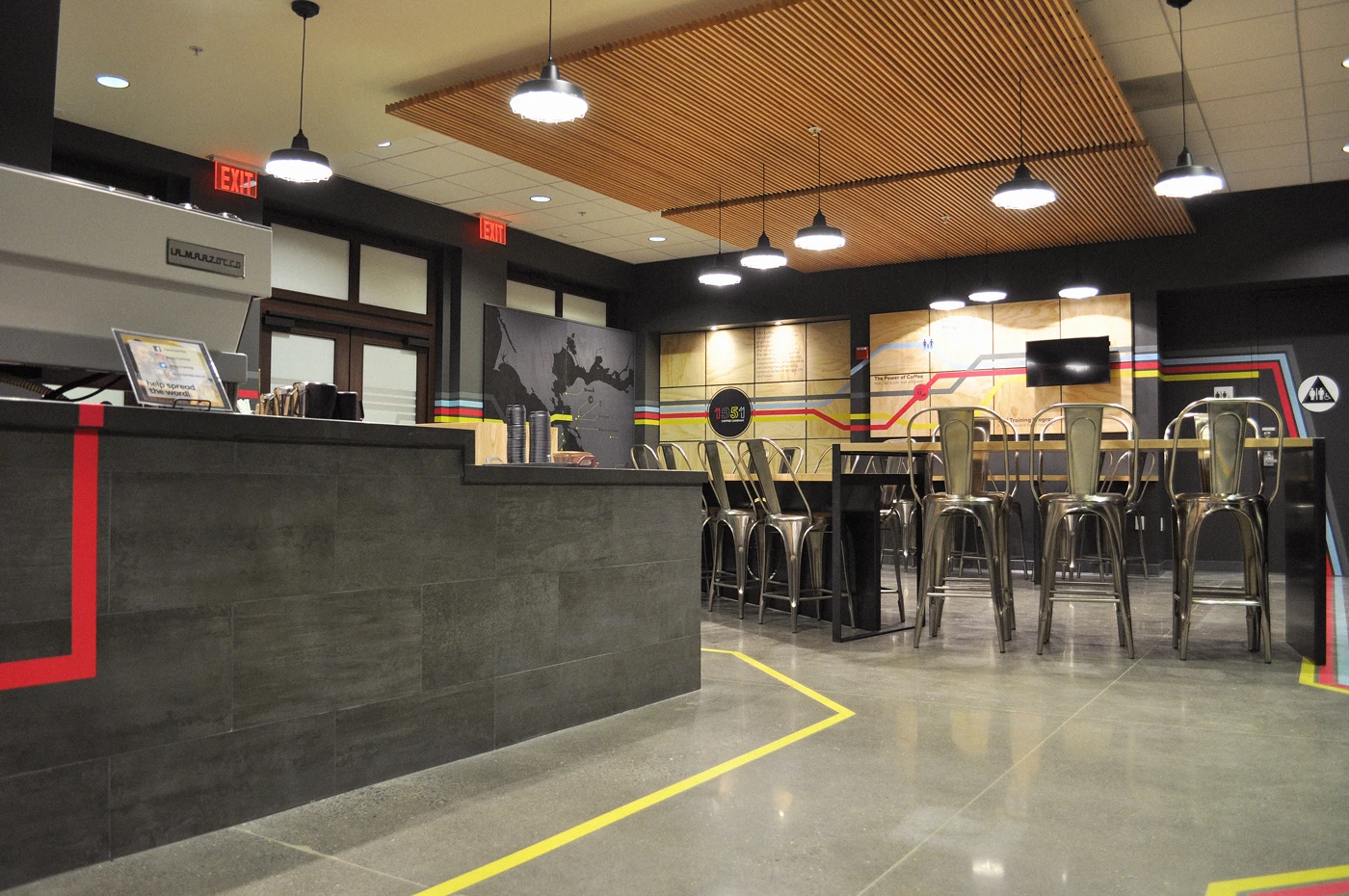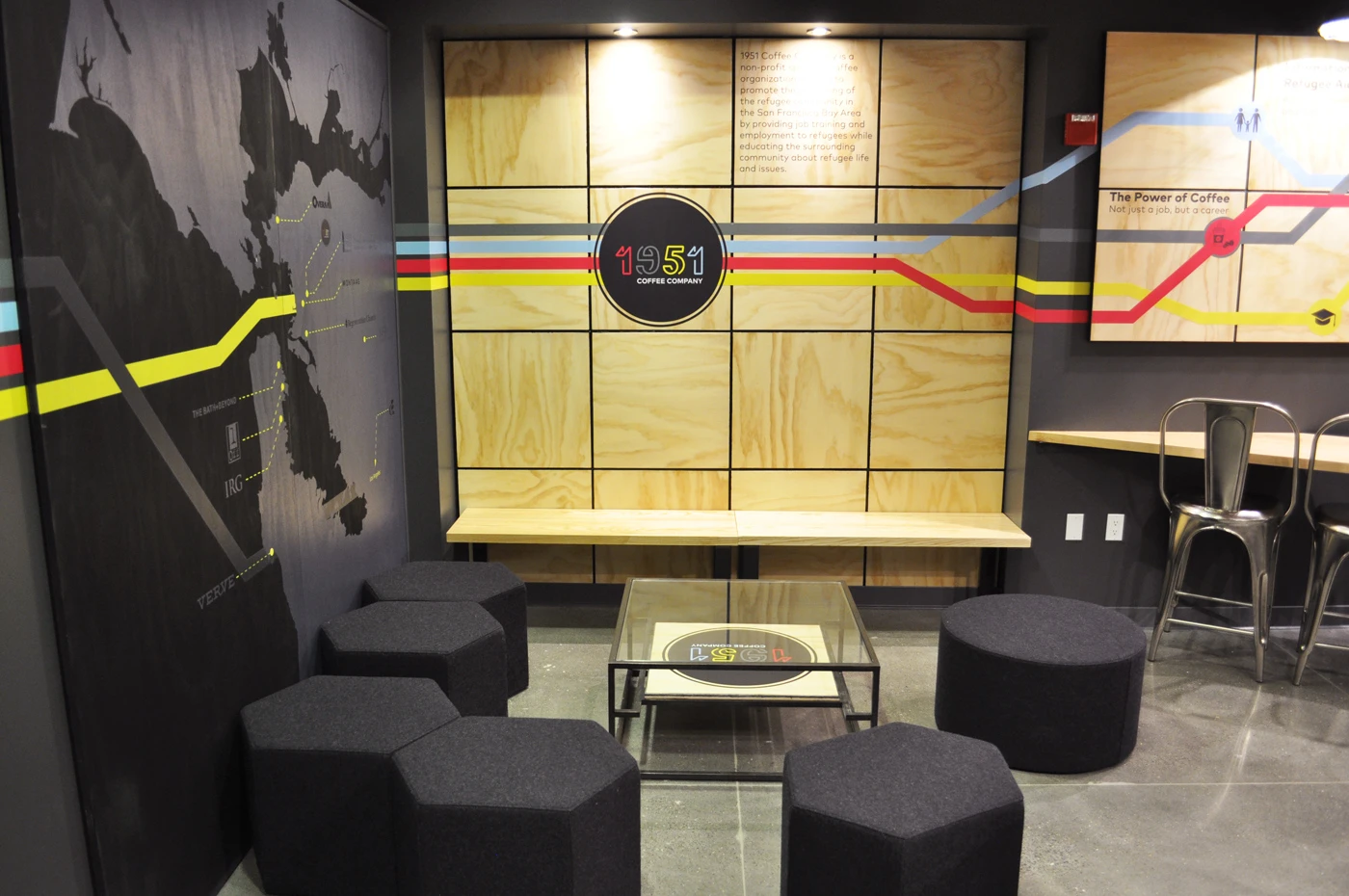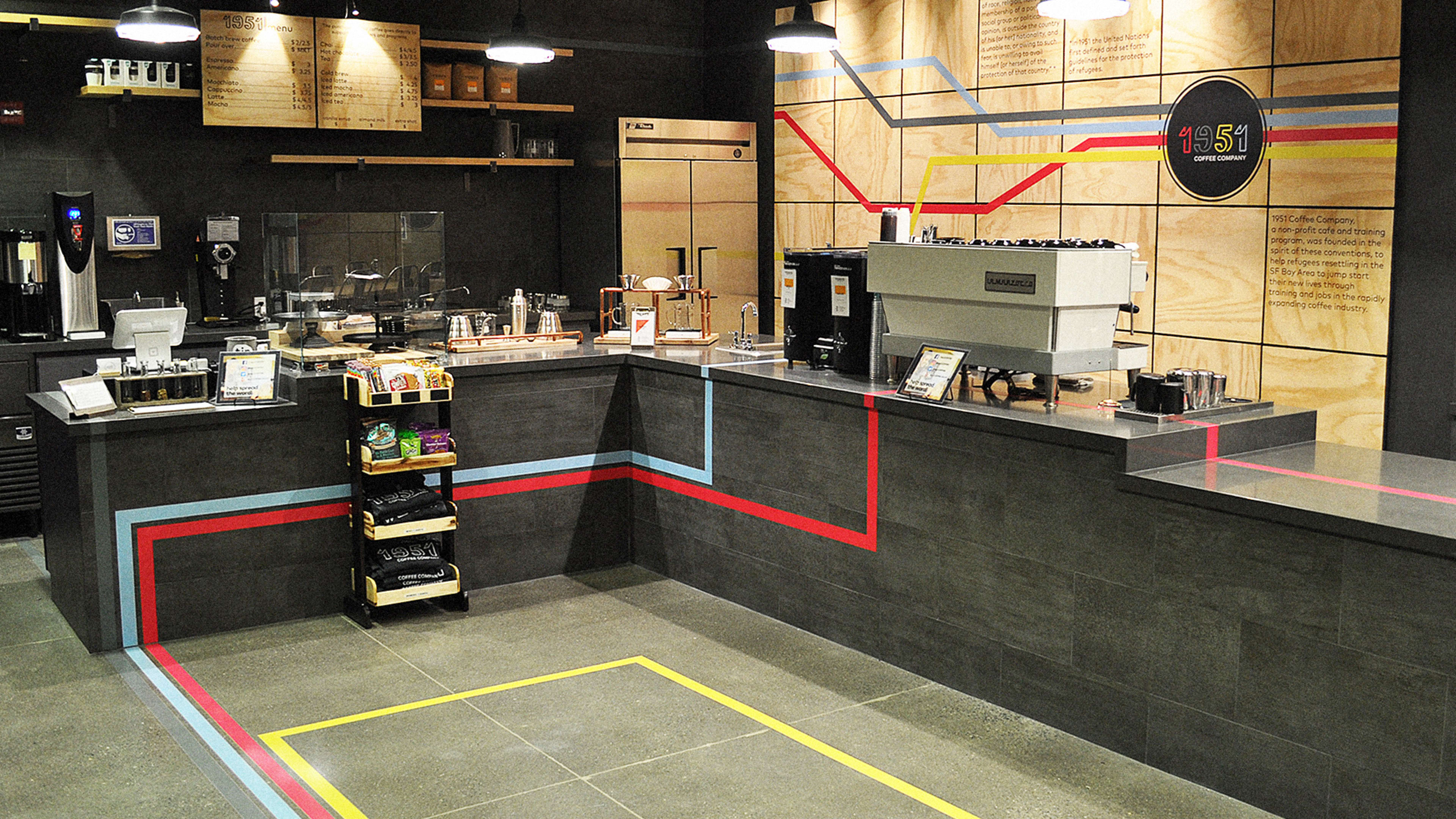The refugee crisis takes on a new meaning in light of Trump’s immigration ban — no longer do we only imagine Syrian refugees traveling by boat, but we also imagine thousands of other countries’ refugees stranded or denied entry to the US or perhaps even fleeing to Canada. So the timing of the opening of a new bay area coffee shop, 1951 Coffee Company–despite being in the works for two years–is rather striking. Staffed entirely by refugees, the shop’s aim is to offer jobs and barista training to refugees and spread awareness about the plight of refugees in this country. Located in Berkeley, California, 1951 opened its doors earlier this year.

Living in America has been “hard and challenging,” says Rama, an employee from Syria who asked that we not use her full name. “There are many challenges, but I like the community here.” Rama fled to the United States from Syria, after a stop in Jordan. “I feel like 1951 Coffee is my second family,” she says. She mentions it’s tough work due to standing for long hours but the hard work makes her happy.
Besides Syria, the eight baristas hail from Eritrea, Uganda, Afghanistan, Iran, Bhutan, and Myanmar. Half of the group have only been in the United States for two months.
Founders Rachel Taber and Doug Hewitt met while working at the International Rescue Committee, but wanted to start a venture to help refugees with perhaps the hardest challenge upon arrival: making a living. Knowing that refugees’ struggle often is just beginning once they arrive in their new country, Taber and Hewitt decided they needed a way to give refugees skills training and jobs. Hewitt had a particular interest in coffee and Taber had a passion for operations: thus formed 1951 Coffee. “We’ve been a social enterprise from the beginning,” Taber says. “It’s not something we added on after-the-fact.”

While the refugees work at the cafe, the skills training is perhaps the more important part: ideally, the refugees go on to more sustainable work in the coffee world. The advantage of being in the Bay Area is the proximity to some of the world’s largest tech company offices, which have large in-house dining operations for employees and employ a lot of trained baristas to keep their engineers wired on caffeine. 1951 has already connected its trainees to jobs at Dropbox and other tech giants, which means the refugees get access to tech company benefits, a huge leg up in the quest for financial stability in their new country.
Inside 1951, the decor helps tell the story of refugee life and challenges. 1951 refers to the year that the United Nations created the Refugee Convention, which outlines the parameters around who is a refugee and who is not and the procedures for re-settlement for participating countries. The interior walls, part of a design from Norwegian design firm, Montaag–are covered with statements about the convention.

Taber says that community buy-in from friends, tech companies, architectural designers, the refugee communities, and other nonprofits were key to 1951 becoming a working business and supporting the refugees who now work there.
In a sense, the workforce at 1951 is creating a vision of a welcoming American melting pot, in microcosm, a model for what the country could be. “Berkeley is a beautiful area with people from all over the world,” says Rama. “It is nice, because I am getting to learn about many different countries and people.”
Follow Jenara Nerenberg on Twitter.
Recognize your brand’s excellence by applying to this year’s Brands That Matter Awards before the early-rate deadline, May 3.
